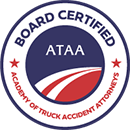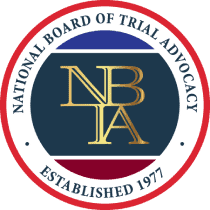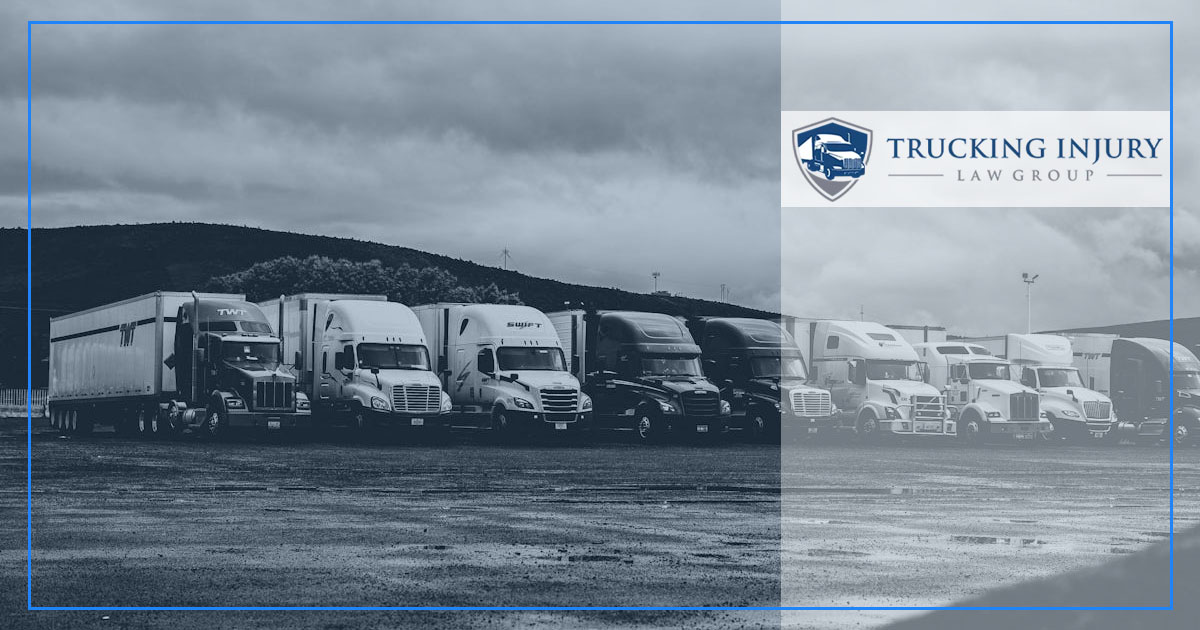Can You Drive a Commercial Vehicle Without a CDL?
When someone has a commercial driver’s license, they have the proper training and skills to handle these large vehicles. But do you really need it to drive an automobile that’s considered to be a commercial one?
We’ll address the question, “Can you drive a commercial vehicle without a CDL?”
Countless trucking accidents occur on the roads every day, many of them caused by unlicensed drivers. At Trucking Injury Law Group, we have long been on the frontlines, aiding innocent victims and their families who’ve suffered unnecessary harm because of negligent motorists’ actions.
There’s a reason why CDLs are required, and we’ll break the consequences of driving without a license.
What Is a CDL?
A CDL, short for a Commercial Driver’s License, is more than a standard driver’s license. When a driver has a CDL, they can operate large, heavy, or specialized vehicles known as commercial motor vehicles (CMVs). These vehicles travel on the roadways and highways, providing all types of services, including the transportation of goods, people, or hazardous materials.
However, there is not one type of commercial driver’s license; there are actually three categories:
- Class A: Drivers who have this license can operate combination vehicles with a gross vehicle weight rating (GVWR) of 26,001 pounds or more, including tractor-trailers.
- Class B: A driver with this license can operate single vehicles with a GVWR of 26,001 pounds or more, such as dump trucks and delivery vans.
- Class C: This license allows the operation of vehicles designed to transport 16 or more passengers (including the driver) or hazardous materials.
By obtaining a CDL, drivers prove that they have undergone specialized training and testing to handle these larger and heavier vehicles safely and effectively.
Qualifications for a Commercial Driver’s License
If you want to obtain a CDL, there are several steps and requirements from the Federal Motor Carrier Safety Administration that you need to fulfill. When you apply for a Commercial Learner’s Permit (CLP), you can practice on public roads under the supervision of a qualified CDL holder.
To qualify, your driving record will be checked for the past ten years, and you will need to take a medical exam.
First-time drivers applying for a Class A or B will need to complete entry-level driver training with a registered training provider. Some states may have additional training requirements beyond federal standards.
After you have the CLP for 14 days, you’ll be eligible to take the CDL skills test. The skills test includes three parts:
- Vehicle Inspection Test: Assesses your ability to inspect a commercial vehicle.
- Basic Controls Test: Evaluates your control of the vehicle during maneuvers
- Road Test: Tests your driving skills on public roads
You must be at least 21 years old if you plan to drive across state lines or operate a vehicle with hazardous materials. If you’re driving intrastate, the minimum age requirement may be 18 years. Once again, that will depend on your state.
Finally, drivers must not have any prior disqualifying criminal offenses.
The process of getting a CDL can be complicated, especially for first-time drivers. However, these skills and tests imply that only the safest and most educated drivers handle these large commercial vehicles.
Driving Without a CDL
Can you drive a truck without a CDL? Well, you could, but it would be illegal. Driving without a valid commercial driver’s license could lead to:
- Fines: Violators may face substantial penalties, which vary by state and the severity of the offense. The fines range from a few hundred dollars to several thousand dollars. Additionally, the violator may also have to pay additional court fees.
- Jail time: In some cases, driving without a CDL can lead to jail time. The violator may also face a suspension of their regular driver’s license. As a result, they may not be able to drive any type of vehicle.
- Employment issues: Employers may terminate or refuse to hire drivers who do not hold a valid CDL. This can affect the driver’s career negatively. In turn, they may have a hard time finding employment in the trucking industry.
- Loss of insurance coverage: Drivers who don’t have a valid CDL could see their insurance, especially if an accident occurs while driving. In these cases, the driver may have to pay for the damages out of their pocket. In the future, their current policy might be dropped by the insurance provider.
Consequences for Companies That Hire Unlicensed Drivers
Employing drivers without valid CDLs can have serious implications for companies. Not only is it illegal, but it can also result in severe penalties and legal liabilities for the employer.
These companies that knowingly employ drivers without CDLs can be fined. The amount varies by jurisdiction but can be substantial. For example, fines can reach up to $10,000 per driver in some cases.
Along with that, employers may face legal repercussions if accidents occur involving unlicensed drivers operating commercial vehicles. The company may be held liable for any damages or injuries caused by the unlicensed driver. Also, companies risk damage to their reputation and credibility if they employ unlicensed drivers.
Employers may lose their business licenses or face restrictions if found guilty of employing unlicensed drivers.
CDLs Ensure Trained and Licensed Drivers Hit the Road
Trucking accidents, like T-bone truck crashes, occur far too often on the roads. Even the most experienced and skilled drivers can have an incident. However, when you have untrained and unlicensed drivers operating these vehicles, it can be a recipe for disaster.
Holding these drivers and their employers accountable for their actions when they cause trucking accidents that cause injuries is the only way to prevent future crashes.
If you’ve been hurt in a wreck with an 18-wheeler or another truck, be sure to contact us for a free case review to learn more about your legal options.






